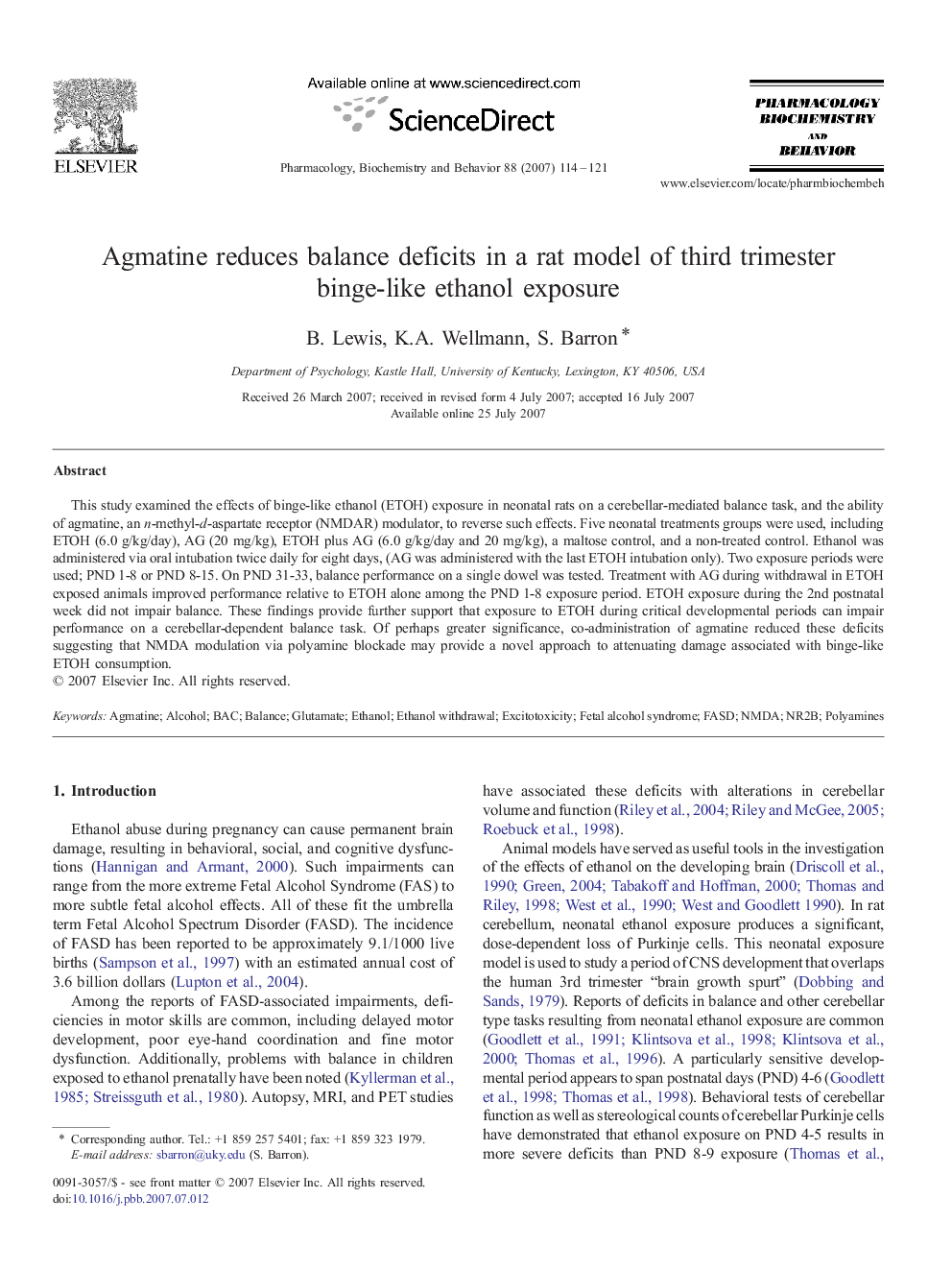| Article ID | Journal | Published Year | Pages | File Type |
|---|---|---|---|---|
| 2013773 | Pharmacology Biochemistry and Behavior | 2007 | 8 Pages |
This study examined the effects of binge-like ethanol (ETOH) exposure in neonatal rats on a cerebellar-mediated balance task, and the ability of agmatine, an n-methyl-d-aspartate receptor (NMDAR) modulator, to reverse such effects. Five neonatal treatments groups were used, including ETOH (6.0 g/kg/day), AG (20 mg/kg), ETOH plus AG (6.0 g/kg/day and 20 mg/kg), a maltose control, and a non-treated control. Ethanol was administered via oral intubation twice daily for eight days, (AG was administered with the last ETOH intubation only). Two exposure periods were used; PND 1-8 or PND 8-15. On PND 31-33, balance performance on a single dowel was tested. Treatment with AG during withdrawal in ETOH exposed animals improved performance relative to ETOH alone among the PND 1-8 exposure period. ETOH exposure during the 2nd postnatal week did not impair balance. These findings provide further support that exposure to ETOH during critical developmental periods can impair performance on a cerebellar-dependent balance task. Of perhaps greater significance, co-administration of agmatine reduced these deficits suggesting that NMDA modulation via polyamine blockade may provide a novel approach to attenuating damage associated with binge-like ETOH consumption.
